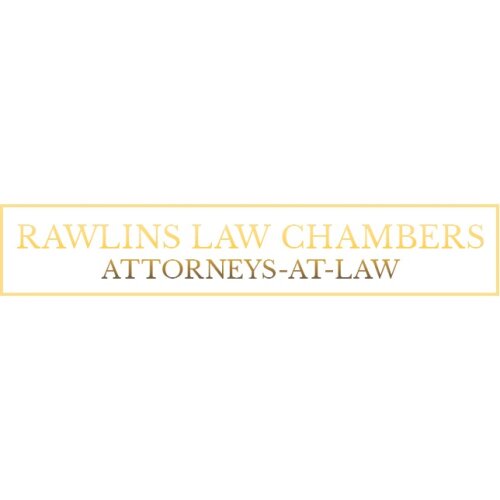Best Faith-Based Law Lawyers in Bridgetown
Share your needs with us, get contacted by law firms.
Free. Takes 2 min.
List of the best lawyers in Bridgetown, Barbados
About Faith-Based Law in Bridgetown, Barbados
Faith-Based Law in Bridgetown, Barbados, intersects with various areas of traditional law, encompassing the rights and obligations of faith communities, ensuring freedom of religion, and addressing concerns that arise due to religious practices. While Barbados adheres to a secular legal system, the influence of faith-based perspectives is notable in certain legal scenarios, especially those related to family law, discrimination, and the operations of religious institutions. Understanding how faith-based considerations marry with local legislation is key to navigating these legal terrains effectively.
Why You May Need a Lawyer
Individuals and organizations often seek legal advice within Faith-Based Law for numerous reasons, including:
- Resolving disputes within religious organizations.
- Understanding the legal rights concerning freedom of worship and religious expression.
- Drafting and interpreting faith-based organizational charters and by-laws.
- Navigating family law issues such as marriage, divorce, and child custody in the context of religious practices.
- Ensuring compliance with national laws while engaging in religious activities or events.
- Handling cases of alleged discrimination based on religion in workplaces or public spaces.
Local Laws Overview
In Bridgetown, Barbados, Faith-Based Law must be considered alongside the broader legal framework. Key aspects include:
- Freedom of religion is constitutionally protected, allowing individuals to practice and propagate their faith.
- Religious organizations must adhere to national registration requirements and compliance with local laws, such as labor and tax regulations.
- Marriage laws accommodate various religious ceremonies, though they must still meet civil registration requirements.
- Laws related to nondiscrimination and equity ensure religious practices do not infringe on the rights of others.
- Educational institutions run by religious bodies must comply with national educational standards while respecting faith-based principles.
Frequently Asked Questions
What is the role of Faith-Based Law in Barbados?
Faith-Based Law in Barbados helps balance the practice of religion with local and national laws, ensuring freedom of worship while protecting other societal interests.
Can religious organizations own property in Barbados?
Yes, religious organizations can purchase, own, and manage properties similar to other entities, provided they adhere to national property and tax regulations.
Are religious marriages recognized by the state?
Religious marriages are recognized in Barbados, but they must be registered with civil authorities to ensure legal standing.
How does one handle a faith-related employment discrimination case?
Persons believing they have faced religious discrimination at work can file a complaint with local authorities who handle labor relations and enforce nondiscrimination laws.
What protections exist for faith-based schools?
Faith-based schools operate under educational laws but are allowed to incorporate religious teachings, provided they meet curriculum requirements set by educational authorities.
Are religious symbols or attire allowed in public institutions?
Yes, individuals can generally wear religious symbols and attire, but specific rules may apply within certain institutions like schools or workplaces.
How do I start a religious nonprofit organization?
To start a religious nonprofit, one must follow the registration and compliance processes set by local authorities, including applying for nonprofit status and adhering to specific operational guidelines.
What is the process for resolving internal disputes within a religious organization?
Internal disputes can often be resolved through internal guidelines or disciplinary measures. However, legal intervention can be sought if necessary.
How do tax laws apply to religious entities?
Religious entities may receive various tax exemptions, but must adhere to regulatory requirements and reporting obligations to maintain such status.
Can a lawyer help in interpreting religious texts and their legal implications?
While lawyers may not interpret religious texts, they can provide advice on how such texts interact with local laws, ensuring compliance and protecting legal rights.
Additional Resources
For further assistance, consider reaching out to the following resources:
- The Barbados Bar Association for a list of qualified lawyers specializing in Faith-Based Law.
- The Ministry of Labour, Social Security and Human Resource Development for employment-related inquiries.
- The Registrar's Office for matters related to marriage and other civil processes.
- The Barbados Faith-Based Organizations Network for support and guidance on community-specific issues.
Next Steps
If you require legal assistance in Faith-Based Law, it is advisable to consult with a qualified attorney who specializes in this field. Begin by clearly identifying the nature of your issue, gathering any relevant documentation, and scheduling a consultation to discuss your case. Legal professionals can provide tailored advice, represent you in negotiations or court, and help navigate the complexities of Faith-Based Law in Barbados.
Lawzana helps you find the best lawyers and law firms in Bridgetown through a curated and pre-screened list of qualified legal professionals. Our platform offers rankings and detailed profiles of attorneys and law firms, allowing you to compare based on practice areas, including Faith-Based Law, experience, and client feedback.
Each profile includes a description of the firm's areas of practice, client reviews, team members and partners, year of establishment, spoken languages, office locations, contact information, social media presence, and any published articles or resources. Most firms on our platform speak English and are experienced in both local and international legal matters.
Get a quote from top-rated law firms in Bridgetown, Barbados — quickly, securely, and without unnecessary hassle.
Disclaimer:
The information provided on this page is for general informational purposes only and does not constitute legal advice. While we strive to ensure the accuracy and relevance of the content, legal information may change over time, and interpretations of the law can vary. You should always consult with a qualified legal professional for advice specific to your situation.
We disclaim all liability for actions taken or not taken based on the content of this page. If you believe any information is incorrect or outdated, please contact us, and we will review and update it where appropriate.








